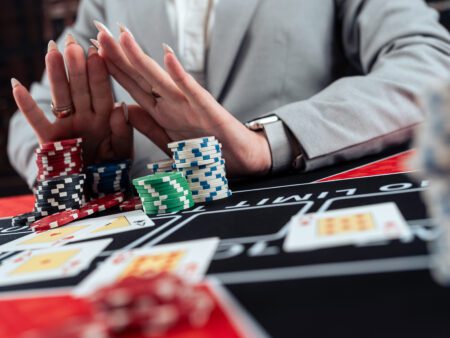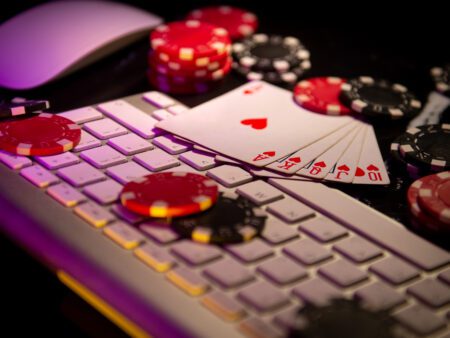Explore the fascinating psychological journey made by players at the roulette wheel. From the thrill of the unknown to the illusion of control, this article delves into the captivating world of the roulette mindset.
The Roulette Mindset: Exploring the Psychological Impact of the Wheel
When the croupier calls ‘no more bets,’ and the roulette wheel begins its mesmerizing spin, a guest standing at that casino table experiences a unique psychological journey. Whether it’s their first time placing a wager or they’re a regular, they become momentarily entrapped by the fascinating blur of numbers and colors. The roulette wheel is not just a game of chance; it’s an intricate dance between human psychology and probability. But what is the psychological impact of the roulette wheel, and how does it affect the way we play?
Understanding the Attraction
The first aspect of the roulette mindset is the game’s attractiveness. The roulette wheel is a spectacle in itself – it’s visually appealing, full of suspense, and it promises a seductive chance of winning big. The wheel’s spin and the ball’s erratic journey are compelling sights, as they delay the outcome and extend the thrill. These visual and auditory stimuli can stimulate the release of adrenaline, providing a sensory rush quite unlike any other in the gaming world. Moreover, the simplicity of the game entices both seasoned and new players alike. There’s no need for complex strategies; just choose a number or color, place the bet, and wait for the wheel to stop spinning.
The Illusion of Control
Part of roulette’s enthralling power lies in the illusion of control. You choose your numbers, your colors, your bet size. Even though the outcome is inherently driven by chance, the act of making these decisions foster a sense of false control in players.
Evidence of this comes from studies on what psychologists call the ‘illusion of control’ – the belief that we can affect the outcome of an uncontrollable event. It’s a cognitive bias that frequently occurs in games of chance like roulette.
Thrill of the Unknown and Psychology of Numbers
The anticipation of where the ball will land, unpredictability, the glory of hitting your number, or the agony of a near miss, all play into the emotional roller coaster that is roulette. These elements of the ‘unknown’ play a powerful role in captivating a player’s attention, creating a sense of exhilaration.
Furthermore, humans naturally associate certain meanings or sentiments with numbers. For example, the number seven often represents luck in many cultures, while the number thirteen could be considered unlucky. Players may choose their roulette numbers based on these perceptions, and when their ‘lucky number’ hits, it further reinforces these beliefs.
Managing Emotions Amidst High-Risk, High-Reward Gameplay
Despite the fun-filled aura the roulette table often exudes, underneath lies a high-stake game that tests one’s emotional stability. The excitement revolving around the potential of massive payouts can indeed be intoxicating. Nonetheless, it’s essential to have a solid grasp over one’s emotions. Feelings of despair from losses or extreme euphoria from victories can lead to impulsive behavior that might be detrimental in the long run. In a previously published post, we discussed some effective strategies for controlling this impulsive behavior.
Reiterating the Safe Gambling Practices
Understanding the psychology behind the allure of roulette is beneficial. It not only aids in maintaining control during the game but also emphasizes the importance of playing responsibly and placing sensible bets. Online gambling should always be seen as a form of entertainment and not a quick route to riches. If playing starts causing distress or financial hardships, it’s advisable to seek professional help immediately.
The Role of the Online Environment
While the core psychology of playing roulette remains the same, the transition to online gambling platforms has subtly shifted this dynamic. The online environment can create an increased sense of anonymity and comfort. This shift can play both ways – while it could potentially mitigate the pressure of a crowded casino, lack of physical presence may sometimes lead to an underestimation of losses. Hence, online gamblers should be mindful of their gaming habits and limit their wagering to what they can comfortably afford to lose.
To conclude, understanding the psychology of roulette can provide valuable insight into why the game is so captivating. From the illusion of control to the thrill of the unknown, to the association with numbers, roulette offers a complex and enthralling psychological journey. By recognizing these aspects, players can manage their emotions effectively, temper their expectations, and enjoy a more engaged and responsible gaming experience.
Identifying your reactions to these psychological triggers can profoundly influence your online gambling experience. Ready to test your newfound knowledge and awareness on the digital roulette wheel?










